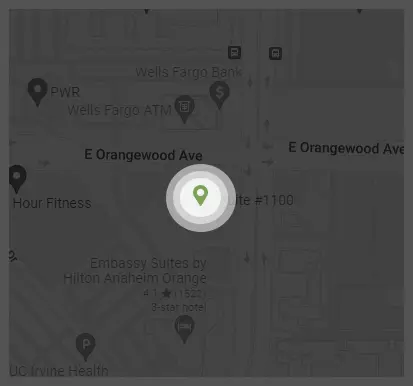What is a Violation of a Restraining Order?
When the terms of a protective or restraining order are violated, the violation is considered a criminal act. It is illegal to violate a court-issued restraining order. This crime is often charged in connection with domestic violence cases.
To prove that a protective order has been violated, a prosecutor must show:
- A court lawfully issued a protective order clearly stating that the violator must stay away from a specific person or refrain from a particular act.
- The violator was aware of the court order.
- The violator possessed the ability to follow the order.
- AND the violator knowingly and willfully violated the order.
What are the Types of Restraining Orders and Contact Prohibited?
The most common types of restraining or protective orders include:
- Domestic Violence Protective Orders
- Civil Harassment Restraining Orders
- Elder or Dependent Adult Abuse Protective Orders
- Workplace Violence Restraining Orders
Most of these orders require the restrained person to avoid any form of contact with the protected individual, such as:
- Personal contact
- Text messages
- Phone calls
- Social media communication
The restrained individual will also be required to maintain a distance of so many feet from the protected person.
Different levels of criminal restraining orders have other restrictions, and they are:
- Full stay-away order
- Peaceful contact order
A full stay-away order is the most restrictive order and contains requirements that prohibit any contact between the involved individuals.
Less restrictive orders can be issued for many reasons, such as when a couple shares minor children.
Peaceful contact protective orders may allow the restricted individual to continue to reside with the protected person or to contact them by phone or other devices so long as the contact refrains from violence, threats, stalking, or intimidation.
What Are the Penalties Associated With Violating a Protective Order
If a person has previously violated a restraining order and then violates it again with the involvement of violence, threats of violence, or injury, then they may be charged with a felony, which includes up to three years in prison and a fine of up to $10,000.
A misdemeanor violation of a restraining order may result in up to one year in jail and a fine of up to $1,000.
A misdemeanor violation may become a wobbler, which is a charge that may be prosecuted as either a misdemeanor or a felony. It will become a wobbler if:
- It is the second violation of a protective order AND
- The violation includes an act of violence
Consequences on Immigration
Typically, violation of a restraining order does not affect immigration status.
If the violation involved an aggravated felony, then a criminal conviction may result in:
- Deportation or
- Being marked as inadmissible
Consequences on Gun Rights
Gun rights in the State of California are only affected by felony convictions. Felons in the state cannot own or possess a gun. This means that if the violation of the restraining order is a felony conviction, then the violator will be stripped of their gun rights.
There are no impacts on gun rights for misdemeanor cases.
Expungement
A violation of a restraining order can usually be expunged if:
- Probation has been completed if imposed.
- A jail term has been completed if imposed.
Can a Victim Violate a Restraining Order?
Victims who are named as ” protected persons” in a protective order can not get into legal trouble for contacting the restrained person. Only the restrained individual faces arrest and charges for violating the order.
However, it is not a good idea for a protected person to attempt communication. When communication is attempted, the restrained individual may use the communication as evidence that the protected individual is not afraid of them; therefore, the order is not necessary.
What are Possible Defenses to Protective Order Violation Charges?
Possible defenses should be heavily discussed with the attorney who will be representing the case. The attorney, such as those found at The Law Office of Patrick O’Kennedy, will evaluate the specific circumstances of each case to decide which possible defense will work best.
Common defenses to these cases include, but are not limited to:
- Not a willful act: The prosecutor must prove that the restrained person willfully violated the order. An attorney may make a reasonable argument that the violation was committed but committed accidentally and not willfully or intentionally.
- Lack of knowledge: The prosecutor must prove that the restrained person knew about the order. An attorney may make a reasonable argument that the violator did not realize that the order had been issued.
- False allegations: It is common for a person to be falsely accused of violating a restraining order. If the alleged victim had other motives after the demise of the relationship, then it may be argued that the allegations were made out of anger or jealousy.
What are Other Related Domestic Violence Offenses?
Similar or related offenses include:
- Domestic battery
- Corporal injury to a spouse
- Child abuse
- Child endangerment
- Elder abuse
- Criminal threats
- Witness intimidation
- Annoying phone calls
- Stalking
- Firearm possession
- Vandalism
- Contempt of court
Do You Need an Attorney?
If you or a loved one have been arrested and charged with violating a restraining order, our office is here to help you. Violating an order may have a completely innocent explanation. It is imperative to contact an attorney at The Law Office of Patrick O’Kennedy today to safeguard all of your tomorrows. Call us today at 714-701-6356 or fill out a contact form to schedule your case evaluation.








